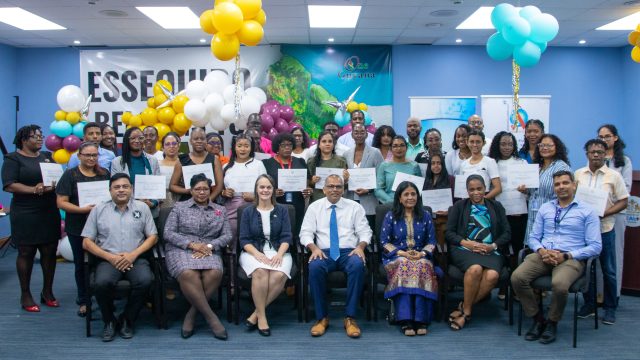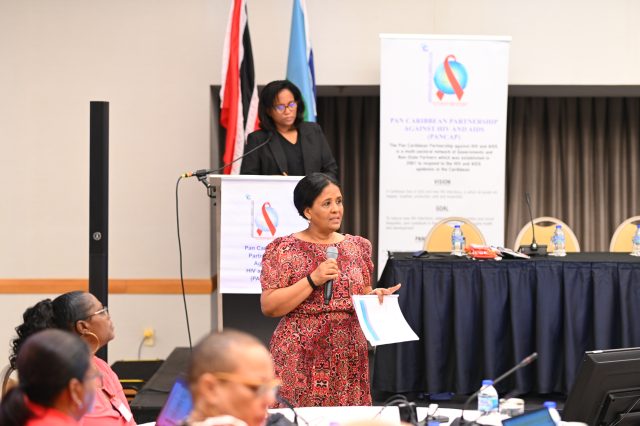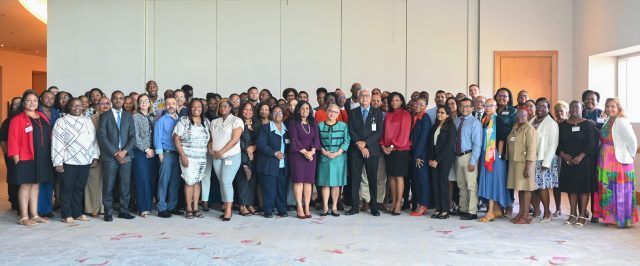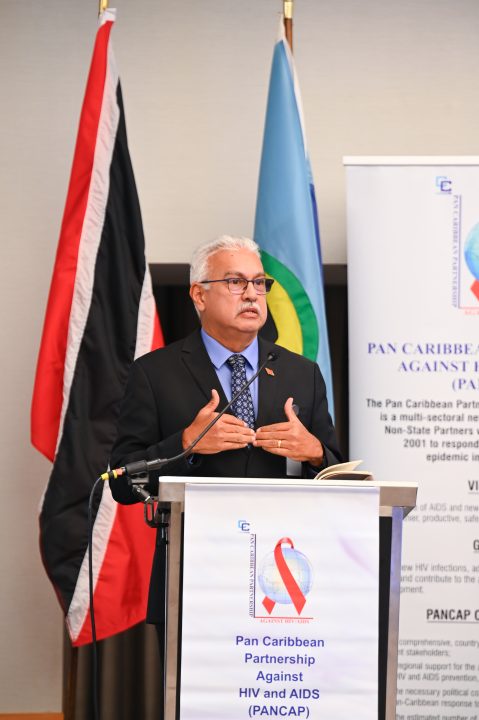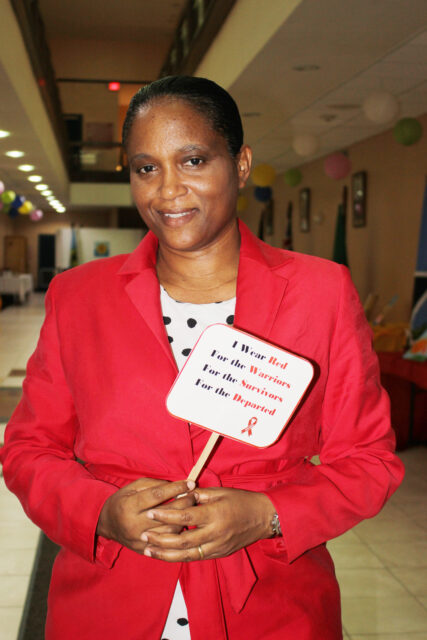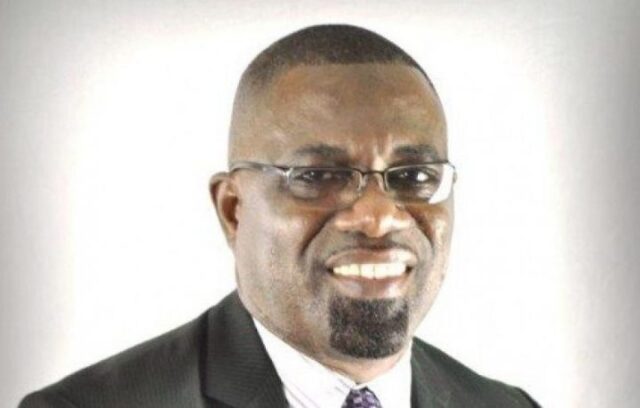Tuesday, 7 May 2024, (PANCAP Coordinating Unit, CARICOM Secretariat): The Pan-Caribbean Partnership against HIV and AIDS (PANCAP), the mechanism that provides a structured and unified approach to the Caribbean’s response to the HIV epidemic hosted a certificate award ceremony on Friday, May 3, 2024, at the Ministry of Health (Guyana) Boardroom. This event was for participants who completed modules of the University of Washington’s Global Health E-Learning Programme (eDGH). This programme is being facilitated by the PANCAP Knowledge Management Project, with support from the United States Agency for International Development (USAID).
Knowledge Management Coordinator – PCU, Dr. Shanti Singh Anthony chaired the proceedings and provided welcoming remarks. She recognised the intrinsic partnership between PANCAP, the University of Washington, the Ministry of Health, and USAID, and congratulated the awardees on their tenacity and commitment to completing the modules. Dr. Singh-Anthony urged them to continue to take advantage of additional training opportunities being offered by PANCAP.
In delivering remarks at the ceremony, the Director – PANCAP Coordinating Unit (PCU), Dr Wendy Telgt Emanuelson thanked the United States Agency for International Development (USAID) for their support in making the programme possible and highlighted Guyana’s high level of interest and participation in the programme.
Chargé d’Affaires, United States Embassy, Georgetown, Ms Adrienne Galanek shared how honoured she was to celebrate the great work being done by PANCAP – which she underscored has also been an exemplary partner with the United States Government’s President’s Emergency Plan for AIDS Relief (PEPFAR).
In referencing the positive impact of PANCAP’s knowledge management project in capacity building among health care professionals in the region, Ms Galanek pointed out, “In the last year alone, over 2,000 health care professionals were trained through PANCAP, and approximately 10,000 over the past 5 years. Ensuring that thousands of healthcare professionals are using the most recent, highest-quality practices has been tremendously impactful.”
She congratulated the graduating cohort and urged them to apply the knowledge and skills gained through the programme in their respective areas of operation.
Representing the CARICOM Secretariat was the Director, Human Development, Directorate of Human and Social Development, Ms Helen Royer. She noted that the Global Health E-Learning Programme (eDGH) with the University of Washington was initiated in 2021, during the COVID-19 pandemic, when USAID supported a cohort of 20 HIV clinical professionals who completed a ten-week online HIV clinical management course with the university. She said the resounding success of this programme led to further funding from USAID in this capacity-building model.
“As of the end of December 2023, 11 cohorts with 499 persons completed a variety of courses with the University of Washington. These participants included Programme Managers, Public Health practitioners, and health care workers from the Public, Private, and Civil Society Sectors from 15 CARICOM countries,” Ms Royer stated.
The Honorable Minister of Health, Dr. Frank Anthony, delivered the feature address. He congratulated the graduates and charged them to continue to utilise every opportunity available to engage in continuous professional development. He stressed the importance of medical professionals constantly upgrading their knowledge base to ensure they are delivering cutting-edge service to their clients. “Because of the quality of service we deliver and the kind of organisation that we represent, we must keep ourselves updated constantly so that we would not have problems. Those of you in clinical medicine will know that if you are not diligently keeping abreast, you will be outdated,” the Minister said.
Outlining the overall transformative work being done within the Ministry of Health, Dr Anthony urged the graduates to be inspired agents of change in their respective fields of work. “Wherever you are located in the ministry, you must feel empowered so that you can facilitate change at your level so that we can see improvement.”
Two participants, Dr Cherith James, and Dr Vikesh Bissoon, provided reflections on their time during the programme and shared how the experience and the knowledge gained significantly improved their ability to function with greater efficiency and effectiveness.
Through this strategic partnership, healthcare professionals are provided with opportunities to equip themselves with the latest knowledge, skills, and abilities to deliver exceptional patient care and address emerging challenges, while engaging in continuous professional development. The knowledge gained from these modules will certainly serve to elevate the proficiency of those who participated, reinforcing their capacity to provide outstanding healthcare services of the highest quality.

